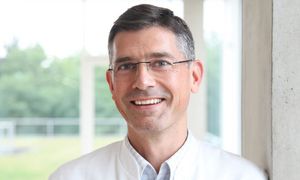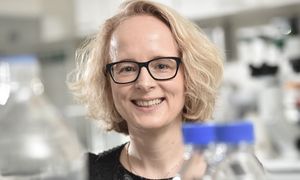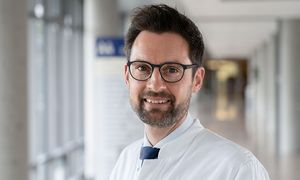Our Research
Even though the life expectancy of our patients is steadily increasing within the last years, the number of patients suffering from heart failure, the prevalence, is increasing. Also, the number of patients being diagnosed the first time with heart failure, the incidence, is steadily increasing. This leads to heart failure being the main reason for hospital admissions in internal medicine and in Germany heart failure is the leading cause of death.
Complementary concept
To understand and better treat heart failure, the comprehensive heart failure centre (CHFH) is focusing on a complementary approach. Patients being diagnosed with heart failure are mostly old and suffer severe comorbidities. These comorbidities can complicate heart failure and vice versa. So therefore, we are trying to also understand heart failure as a complex disease to also understand and treat these comorbidities.
Four cornerstones of research
The research structure within the CHFC is based on four cornerstones, being represented through four departments and corresponding four professorships:
- Molecular and cellular imaging (Prof. Dr. Laura Schreiber)
- Cardiovascular genetics (Prof. Dr. Brenda Gerull)
- Translational research (Prof. Dr. Christoph Maack); This means to transfer research results from bench to bedside
- Clinical research unit and epidemiological heart failure research (Prof. Dr. Stefan Störck); Investigation of prevalence and incidence and influencing factors of heart failure within the population
These four departments collaborate very closely to investigate the three most important questions in heart failure:
- How does the heart muscle, the myocardium, change during the time since the diagnosis of heart failure and what is the underlying mechanism?
- How do heart and brain interact?
- Are there interactions with different organ systems?
These questions reflect to three important projects: Myocardium, Heart and brain, metabolism.
Several working groups formed by different departments from the university clinic are supporting the four departments with their special expertise.
Very important for the further research of the CHFC has been the establishment of a very special heart failure biobank containing blood and tissue samples as well as DNA probes.
Core facilities
Our research would not be possible without our very modern infrastructure: The research institutes have so called core facilities. They are open for external researchers: We share our technical infrastructure as well as the personal expertise in form of support, advice and analysis.
Contact Person
Prof. Dr. med.
Stefan Störk
Leiter des Departments Klinische Forschung und Epidemiologie der Herzinsuffizienz
+49 931 201-46363
Prof. Dr. rer. nat. et med. habil.
Laura Schreiber MBA
Leiterin des Departments Bildgebung
+49 931 201-46365
Prof. Dr. med.
Brenda Gerull (Genetik)
Leiterin des Departments Kardiovaskuläre Genetik
+49 931 201-46457
Prof. Dr. med.
Christoph Maack (Translationale Forschung)
Leiter des Departments Translationale Forschung
+49 931 201-46502











